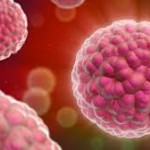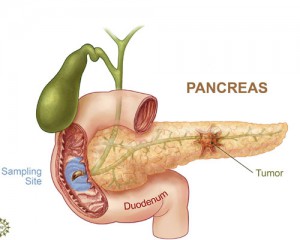
But there are precautions you can take to lower your risk, experts say. Being aware of the telltale signs of these fleet-footed killers is also the key to early detection, treatment, and survival. Cancer specialist and chief medical officer , tells one reason fast-moving tumors are so lethal is because effective screening tests don’t exist to identify them early — unlike slow-growing prostate, breast, and colon cancers that are more readily diagnosed in initial stages.
The way to think of it like this: A burglar who breaks into a house, who gets in quickly and gets out quickly, is less likely to be caught than a burglar who breaks into a house and spends a long time there. Breast and colon cancer … are more amenable to screening because they are slower moving and are easier to catch because of that. The thing about pancreatic, esophageal, brain and liver, and some of the skin cancers is … these tumors can grow to quite a large size before we actually realize they are there.
Your best defense? Knowing exactly what your risks are, as well as what you steps you can take to prevent and combat such cancers early. With that in mind, here is a primer on five of the fastest-moving cancers.
1)Pancreatic cancer: 
Pancreatic cancer is a disease in which malignant (cancerous) cells form in the tissues of the pancreas. The pancreas is a gland located behind the stomach and in front of the spine. The pancreas produces digestive juices and hormones that regulate blood sugar. The majority of pancreatic cancers start in the exocrine cells. Pancreatic cancer is often called a “silent” disease because it rarely shows early symptoms and presents non-specific later symptoms. Tumors of the pancreas cancers are usually too small to cause symptoms. However, when the cancer grows, symptoms include:
- Pain in the upper abdomen from the tumor pushing against nerves.
- Loss of appetite, nausea, and vomiting.
- Sudden onset of glucose tolerance disorder, such as diabetes.
- Black or bloody stool, indicating bleeding from the digestive tract.
2)Liver cancer. The Liver continuously filters blood that circulates through the body, converting nutrients and drugs absorbed from the digestive tract into ready-to-use chemicals. The liver performs many other important functions, such as removing toxins and other chemical waste products from the blood and readying them for excretion. Because all the blood in the body must pass through it, the liver is unusually accessible to cancer cells travelling in the bloodstream.
When cancer develops in the liver, the cells change and grow in an abnormal way. As the cancer grows it forms a group of cells called a tumor. This tumor can cause a blockage and result in symptoms like pain and jaundice. When cancer starts in the liver, it is called primary liver cancer. But when cancer starts somewhere else in the body and spreads to the liver, it is called secondary liver cancer.
3)Brain cancer. Brain cancer is a tumour or cancerous growth in the brain. A tumour, whether in your brain or elsewhere, is a mass of cells that reproduce themselves in an uncontrolled way. Tumours can be either benign or malignant.
Benign brain tumours are abnormal collections of cells that reproduce slowly and usually remain separate from the surrounding normal brain. They grow slowly, do not spread to other parts of the brain and can usually be removed more easily.Brain tumors can cause many symptoms. Some of the most common are:
- Changes in your ability to smell, talk, hear, or see.
- Problems with balance or walking.
- Problems with thinking or memory.
- Muscle jerking or twitching
- Weakness, Numbness or tingling in arms or legs
- Nausea and projectile vomiting.
4)Esophageal cancer. Esophageal cancer is a disease in which malignant (cancer) cells form in the tissues of the esophagus.The esophagus is a hollow tube that carries food and liquids from your throat to your stomach. Early esophageal cancer usually does not cause symptoms. However, as the cancer grows, symptoms may include painful or difficulty in swallowing, weight loss and coughing up blood. Risk factors for developing esophageal cancer include:
- Smoking
- Heavy Drinking
- Damage from acid reflux
5) Skin cancer. The deadliest form of skin cancer — and nearly 9,500 will die of the disease, the NCI projects. The biggest risk factor: sun exposure and indoor tanning.
Check your skin for irregular moles, growths, and patches. Make sure to limit your sun exposure and apply sunscreen liberally and regularly when you’re outdoors — particularly if you are light-skinned or have blonde or red hair, which increases skin cancer risk. See a dermatologist regularly for a skin examination, particularly if you had serious sunburns as a child.
To know more about Cancer Treatment in India please visit this link : https://safemedtrip.com/medical-services/cancer-treatment-in-india.html

 Click to WhatsApp
Click to WhatsApp +91-9899993637
+91-9899993637




